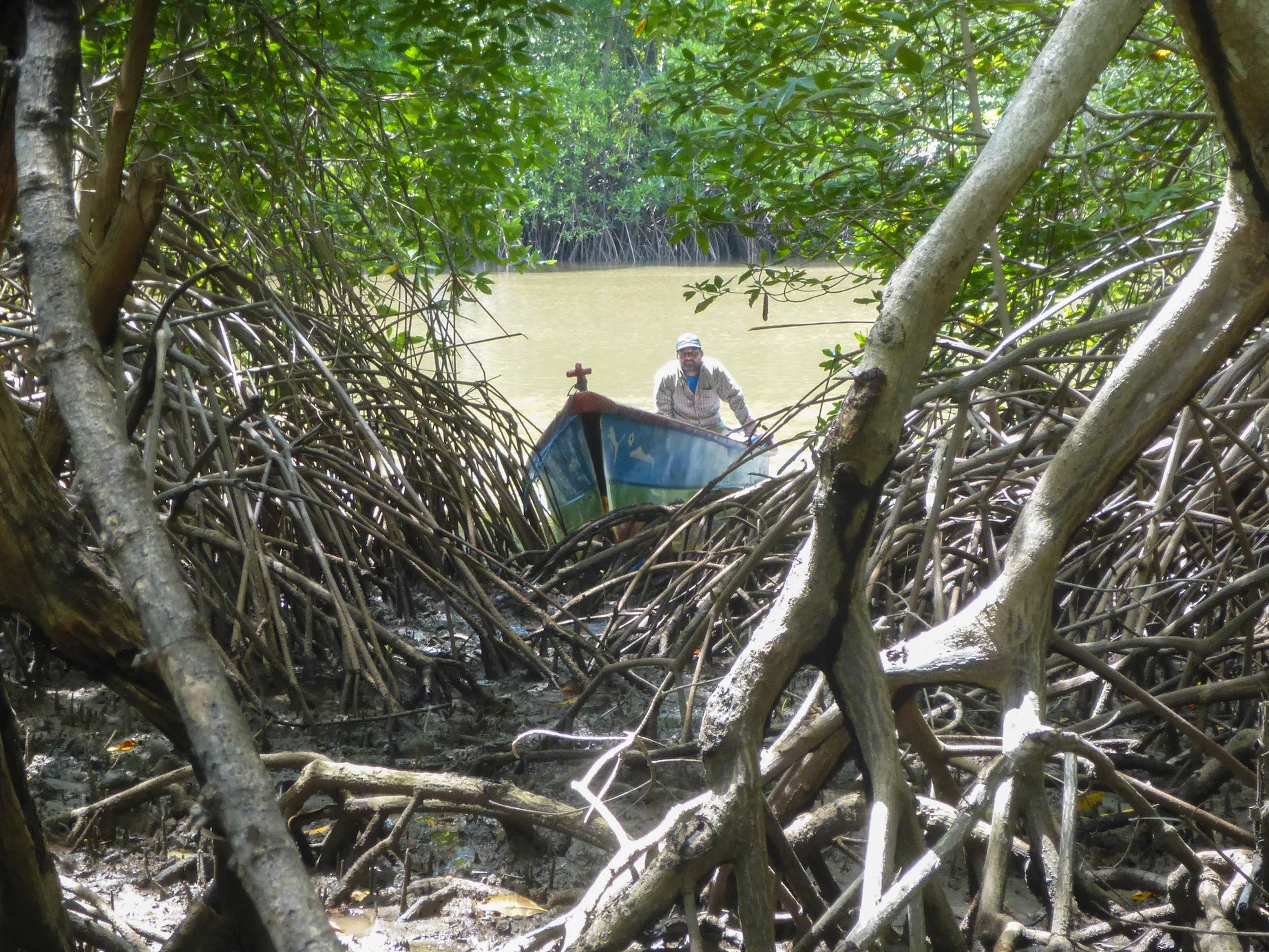Project background
The people on the hot and dry southern coast of Honduras live on what they can grow in their small fields and extract from nature. However, the natural resources of forest, water and soil are often overused, also by large landowners and shrimp farms. The ecologically valuable and sensitive mangrove forests of the Gulf of Fonseca, an internationally protected wetland, are acutely endangered. Forests are dwindling and with them the freshwater reserves. Village communities possess neither the knowledge nor the organisational structure required to steer this development in a different direction and to conserve the mangrove forests and their resources.
Our solution approach
We support the farming families in improving their farming methods through agroecological practices. They thus reconcile resource conservation with higher crop yields. Together with the communities, the project team is committed to preserving the mangrove forests and the natural resources of the Gulf of Fonseca, as well as the sustainable management of the natural resources. It supports the village population to better organise and making their concerns visible to decision-makers. The project also contributes to improving the water supply of the villages.


